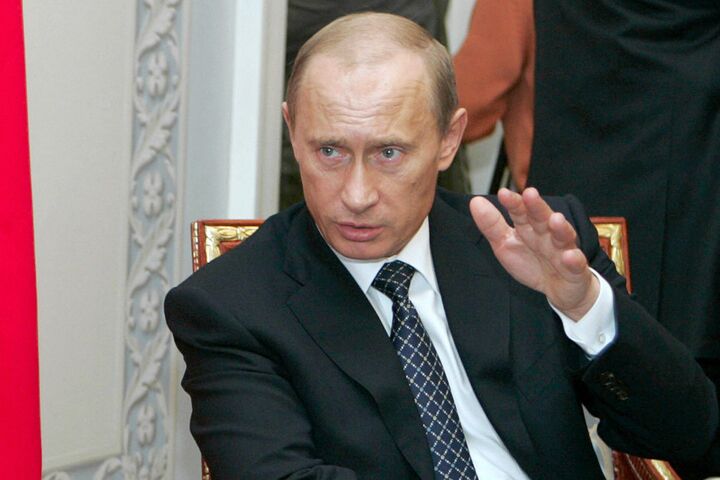
Putin Declares His “Moral Right” to Retain Power
Russia’s president has declared that he has a moral right to remain Russia’s leader if his United Russia party is victorious in next month’s Duma elections.
During his visit to the Siberian town of Krasnoyarsk last Tuesday, President Vladimir Putin stated, “If the people vote for United Russia, it means that a clear majority of the people put their trust in me and in turn that means I will have the moral right to hold those in the Duma and the cabinet responsible for the implementation of the tasks that have been set today. … In what form I will do this, I cannot yet give a direct answer. But various possibilities exist.”
This remark comes after Putin’s recent decision to put his name at the top of the federal list for the United Russia political party. If United Russia wins the December 2 Duma elections, becoming prime minister of Russia would be one of Putin’s “various possibilities” for retaining power.
Because Putin is the lead candidate for United Russia, its winning the Duma election seems almost a certainty. The party’s approval rating is said to have jumped from 47 percent to 56 percent when Putin announced that he would run on the United Russia ticket.
This party has served Putin powerfully in the past by willingly allowing him to foist his decisions upon Russia. In his Krasnoyarsk speech, Putin said, “In my practical activity I relied upon United Russia in the parliament because there was a consolidated force that helped me not only make decisions, but also put them into practice.”
United Russia critic and Communist Party deputy Oleg Kulikov complained, “The Duma has a monopoly of one faction [United Russia], one point of view ,and it’s quite an aggressive monopoly. … It doesn’t provide for any debate. You can have a law passed in three readings in a single day.”
Putin’s support goes far beyond just the United Russia party, however. A group called Pro-Putin claims to have gathered 30 million signatures—almost 5 percent of Russia’s population—in support of Putin serving a third consecutive presidential term, which is forbidden by the Russian Constitution.
All this alleged support for United Russia, and more specifically Vladimir Putin (it’s a little difficult to trust reports coming out of this country considering the influence the government has over the media), has drawn criticism from Russia’s other political parties. Grigory Yavlinksy, the leader of Yabloka, said, “These elections will neither be honest, nor just, nor equal.” Other critics have interpreted Putin’s plans to run on the United Russia ticket to mean that the Kremlin will control the elections more than ever.
The Organization for Security and Cooperation in Europe (osce) has announced it will cancel its observer mission to monitor the Russian elections due to frustration over Kremlin-implemented obstacles. osce is the world’s most authoritative electoral watchdog. The 56-member body monitors elections in Europe, North America and Asia to report on their legitimacy.
Russia belatedly agreed to allow 70 osce observers to monitor the December election instead of the usual 400 observers. After these 70 observers were refused visas into Russia, osce canceled the observer mission altogether. Dictatorial Turkmenistan is the only other country that osce has refused to monitor in the past 11 years.
Although the Putin administration denies that it put any restrictions on the osce observers, the cancellation of this mission indicates the serious skepticism among the international community regarding the predicted legitimacy of the upcoming Russian elections.
Moscow has brushed aside these criticisms. In regard to the osce cancellation, Sergei Mironov, speaker of the Duma’s lower chamber, said, “The world will not collapse because of this. … We will not cry.”
Alexander Konovalov, head of the Institute for Strategic Studies, commented, “It is abundantly clear that the Russian election commission does not want any witnesses for their brilliant electoral preparations.”
In the end, Putin wields the power and believes it to be his “moral right” to retain that power. He himself admitted that “various possibilities exist” as to how he can “hold those in the Duma and the cabinet responsible for the implementation of the tasks that have been set.” Maybe he will alter the constitution to stay on for a third term. Maybe he will take over the position of prime minister and rule Russia with a different title. Whether he leads from the front or from behind the scenes, this much seems certain: Putin will continue to bring the Russian nation back into the power it had during the Soviet era.
For more information on Putin’s rise to power, read “Embracing Authoritarianism.”
